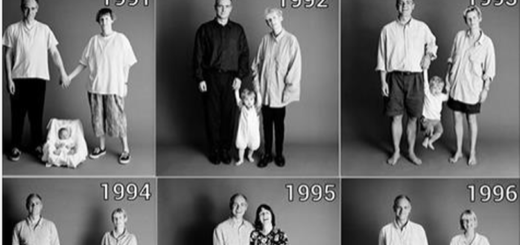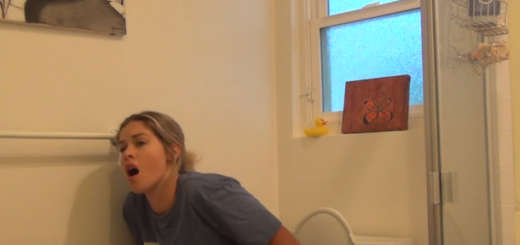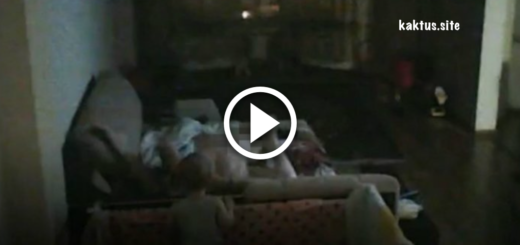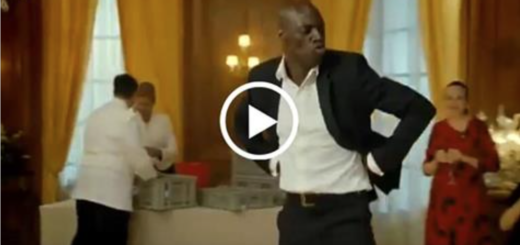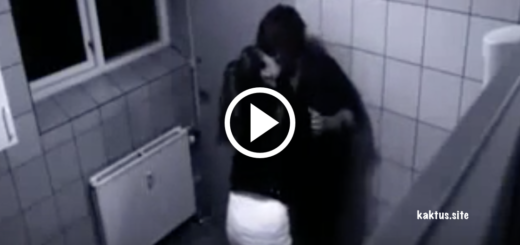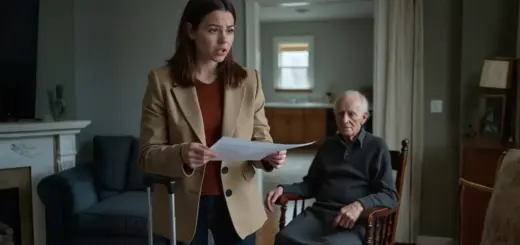A tea, my husband’s family barbecue. My husband’s sister made a joke: «If you disappeared tomorrow, no one would even notice.» Everyone laughed, except me. I just raised my hot dog and said, «Challenge accepted.» I moved out that night, cut contact, and vanished. A year later, who’s forgotten now?

I’m Vanessa, 34, and despite seven years of marriage to Gregory, I’ve always felt like an outsider in his family. Last summer, at their annual barbecue, I hoped things would finally be different. Gregory’s sister, Amanda, had other plans.
While everyone gathered around the picnic table, I tried sharing news about my graphic design work. Amanda interrupted with a smirk, «If you disappeared tomorrow, no one would even notice.» The table erupted in laughter—even Gregory. I just raised my hot dog, locked eyes with her, and said, «Challenge accepted.» I moved out that night.
What happened when I reappeared a year later? Gregory and I met during our final year at university. I was studying graphic design while working part-time at a local coffee shop to pay tuition. He was completing his business degree, fully funded by his parents. We connected when he came in for a late-night study session and started chatting about the book I was reading behind the counter. Our romance was a whirlwind. Within three months, we were inseparable.
By graduation, he proposed with a ring that cost more than my entire student debt. I was swept away by his charm, intelligence, and what I perceived as genuine love. When we married a year later, I thought I was entering not just a partnership, but a new family.
The Caldwells were everything my family wasn’t: affluent, well-connected, and tight-knit in their own particular way. Richard, Gregory’s father, built a successful marketing firm from the ground up. Patricia, his mother, managed their social calendar with military precision while serving on three charity boards. Amanda, his sister, followed in their father’s footsteps, already a junior executive at his company by 27. Michael, the younger brother, was the family rebel who still somehow landed a cushy job at his uncle’s investment firm.
My own background couldn’t have been more different. Raised by a single mother who worked two jobs, I grew up understanding the value of a dollar and the dignity of hard work. My sister, Olivia, and I shared a bedroom until I left for college. Holidays meant homemade gifts and potluck dinners with neighbors. When I first visited the Caldwells’ sprawling colonial home, I felt like I’d stepped onto a movie set.
The class differences were subtle but persistent. Patricia would compliment my «crafty» design work as if it were a cute hobby rather than my profession. Richard would explain basic business concepts to me at dinner, despite my having run my own freelance business for years before meeting Gregory. Amanda would «helpfully» correct my pronunciation of wine varieties or designer names, always with a saccharine smile.
«They mean well,» Gregory would say whenever I brought up these microaggressions. «Amanda’s just trying to help you fit in. That’s how she shows love.» But Amanda’s «love» felt more like a slow poison.
At our wedding, she gave a maid-of-honor speech that included several stories about Gregory’s ex-girlfriends. When we announced we were buying our first home, she questioned if the neighborhood was «really the right fit for a Caldwell.» When I landed a major client, she wondered aloud if they hired me because of Gregory’s family connections.
Despite this, I tried. God, how I tried. I volunteered for Patricia’s charity events, referred clients to Richard’s firm, and remembered everyone’s birthdays with thoughtful gifts. I laughed at their inside jokes even when they stung. I dressed differently for family gatherings, adopted their vernacular, and swallowed my working-class pride when conversations turned to vacation homes and boarding schools.
For the first few years, I maintained my freelance design business, building a modest client list and gaining some recognition in local circles. Then Gregory received an opportunity to expand his division at work if he was willing to travel extensively. Without discussion, it was assumed I would scale back my career to manage our home life. My business dwindled to a few loyal clients as I became increasingly isolated, my world narrowing to Gregory’s intermittent presence and his family’s judgmental orbit.
Last spring, I miscarried at 11 weeks. The physical pain was excruciating, but the emotional aftermath was worse. Gregory was in Chicago for a conference. He offered to come home but seemed relieved when I said I could manage. Patricia sent flowers with a note that said, «Perhaps it’s for the best until you’re more settled.» Amanda suggested that «stress from trying to maintain your little business» might have been a factor.
Only Olivia came to stay with me for a week, bringing homemade soup and sitting with me through tear-soaked nights. The contrast between her genuine care and my in-laws’ clinical distance cracked something fundamental in me. But I buried it deep, another disappointment to swallow in service of maintaining family harmony. By the time the annual summer barbecue rolled around, I was a diminished version of myself. My design work had become mechanical, my friendships had atrophied, and my marriage felt increasingly like a performance.
Still, I held on to a fragile hope that things could improve, that I could somehow earn genuine acceptance from the family I had married into seven years ago. The Caldwell Summer Barbecue was a neighborhood institution. Patricia spent weeks planning, Richard showcased his collection of grilling gadgets, and dozens of family friends and business associates milled about their perfectly manicured lawn. It was the event where family status was displayed and reinforced, where loyalties were confirmed, and outsiders were identified. Despite my years of marriage to Gregory, I remained firmly in the outsider category.
The morning of the barbecue, I spent three hours making my grandmother’s strawberry shortcake, the one dessert that had received genuine compliments in previous years. Gregory was busy on calls, finalizing details for his upcoming business trip to Tokyo. When it was time to leave, he rushed me out the door, concerned about being «fashionably late» versus «actually late.»
«Remember, Dad’s unveiling his new imported smoker today,» he reminded me as we drove. «Try to act impressed, even if you don’t get why it’s a big deal.» I nodded, clutching my dessert carrier on my lap. My sundress, bought specifically to match Patricia’s preferred «casual elegant» dress code, already felt tight across my shoulders.
The Caldwell home bustled with activity when we arrived. Caterers weaved through groups of guests delivering appetizers. Richard stood centered on the patio, surrounded by admiring friends as he demonstrated his new smoker. Patricia floated from cluster to cluster, her laugh tinkling like expensive crystal. Finally, Amanda called out, spotting us as we entered through the side gate.
She air-kissed Gregory, then gave me a quick once-over. «Vanessa, that dress is so cheerful. The kitchen’s getting crowded, but I’m sure you can find somewhere to put your contribution.» She swept Gregory away before I could respond, linking her arm through his and launching into a story about running into his college roommate.
I stood alone, dessert in hand, scanning the backyard for a friendly face. I made my way to the kitchen, where Patricia was directing the catering staff with precise instructions. «Oh, Vanessa, dear,» she said, noticing me hovering in the doorway. «You didn’t need to bring anything. We have the patisserie handling desserts.» She gestured vaguely toward the pantry. «But how thoughtful. Perhaps put it there for now?»
I placed my shortcake on a shelf already crowded with other contributions from guests not worthy of display. As I exited the kitchen, I overheard Patricia instructing a server to «make room for Amanda’s authentic tiramisu» at the center of the dessert table. The next two hours passed in a blur of polite smiles and truncated conversations. I’d start chatting with one of Gregory’s cousins, only to have them pulled away by Patricia to meet someone important. I offered to help set up the buffet line but was told the caterers «had a system.»
I tried joining a conversation about recent films but couldn’t get a word in edgewise. Michael’s wife, Charlotte, received entirely different treatment, despite being married into the family for only two years. Patricia proudly introduced her to everyone as «our Charlotte, the pediatric surgeon.» Amanda included her in reminiscences about family vacations she couldn’t possibly have attended. Even Richard, who rarely engaged with in-laws, asked detailed questions about her work. The contrast wasn’t lost on me, nor was the irony that Charlotte looked as uncomfortable with the attention as I was with the lack of it.
When lunchtime arrived, Gregory reappeared at my side, having spent the morning deep in conversation with his father’s business associates. «Having fun?» he asked, not waiting for an answer before guiding me toward the elaborate buffet line. We filled our plates and joined the main table on the patio. I ended up seated between Gregory’s elderly uncle Frank, who was hard of hearing, and a space left open for Amanda, who was still serving herself. Gregory sat across from me, already engrossed in conversation with Richard about Japanese business etiquette.







